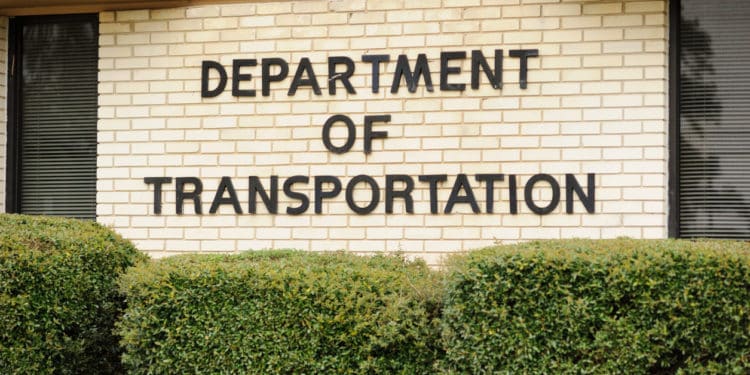On December 12, the National Highway Traffic Safety Administration (NHTSA) published final rules for its Auto Safety Whistleblower Program, over eight years after a Congressionally-set deadline to do so.
“Whistleblowers shine a light on critical safety issues and play a vital role in safeguarding our nation’s vehicles and roads,” NHTSA Deputy Administrator Sophie Shulman said. “Safety is NHTSA’s top priority, and the agency is committed to doing everything in its power to protect whistleblowers.”
The final rules largely mirror those of the hugely successful Securities and Exchange Commission (SEC) Whistleblower Program and contain lengthy discussion about comments provided by whistleblower advocates including the whistleblower law firm Kohn, Kohn & Colapinto (KKC) and the National Whistleblower Center (NWC).
“The regulations are an important step forward. They provide whistleblowers with the guidance needed to effectively report auto safety defects,” says leading whistleblower attorney Stephen M. Kohn, founding partner KKC and Chairman of the Board of NWC.
However, in a number of key areas the NHTSA’s final rules diverge from the best-practices called for by whistleblower advocates. Most notably, despite calls for whistleblower award payments to be mandatory for qualified whistleblowers, the NHTSA retained the discretion to deny awards to qualified whistleblowers in the final rules.
“We remain very concerned about the discretionary nature of this program,” adds Kohn. “But these rules were badly needed.”
The Auto Safety Whistleblower Program was created in 2015 with the passage of the Motor Vehicle Safety Whistleblower Act (MVSWA) which was enacted in response to a number of high-profile auto recalls. Modeled off the Dodd-Frank Act, which established the highly successful SEC Whistleblower Program, the MVSWA offers anti-retaliation protections and monetary awards to whistleblowers reporting auto safety violations.
Under the NHTSA’s auto safety whistleblower program, individuals who voluntarily provide NHTSA original information which leads to a successful enforcement action with over $1 million in penalties are eligible to receive a monetary award of 10-30% of the funds collected by the government.
Under the statute, the Department of Transportation (DOT) and NHTSA were required to approve and publish regulations for the whistleblower program by July 6, 2016. For years, advocates and members of Congress pressured the agency to act.
Following the passage of the MVSWA, advocates including NWC called on the NHTSA to adopt regulations modeled off other highly successful whistleblower award programs, such as the SEC Whistleblower Program.
In April 2023, the NHTSA finally issued proposed rules for the whistleblower program. In its proposal released on April 14 2023, the NHTSA acknowledged previous input and demands from the NWC. The NHTSA’s rule proposal states that “specifically, the National Whistleblower Center provided a proposal that was modeled on the SEC’s and IRS’s whistleblower reward laws.”
“Overall, the rules proposed by the DOT largely mirror the rules of the hugely successful SEC Whistleblower Program,” Kohn wrote in a Reuters article analyzing the proposal. “This makes sense given that the whistleblower provisions of the auto-safety whistleblower program were largely modeled off those found in the Dodd-Frank Act, which established the SEC program.”
“There are three major areas in the proposed rules, however, which could potentially undermine the success of the auto-safety whistleblower program,” Kohn continued in his article.
The three main issues of concern outlined by Kohn are the discretion of the NHTSA Administrator to deny a fully qualified whistleblower from receiving an award, the strictness of filing requirements for the official whistleblower disclosure form WB-INFO, and the lack of clarity of whether internal reporting requirements extend to compliance programs which serve a company’s general counsel.
In its final rules, the NHTSA directly addressed Kohn’s comments on these matters and included some of his suggestions. In regards to the filing requirements for form WB-INFO, the NHSTA stated “NHTSA agrees with Kohn and will not require the timing of the WB-INFO form to be determinative of qualification for an award, subject to other provisions of the statute and regulations” and “NHTSA agrees with Kohn with respect to a whistleblower not being disqualified if the whistleblower is initially represented by an advocacy group. Rather, as long as it is clear that an advocacy group is making a submission on behalf of an individual, a whistleblower’s eligibility will not be affected.”
However, in regards to Kohn’s arguments against discretionary awards, the NHSTA wrote that it “believes that it is important to retain discretion.” Advocates like Kohn argued that all other discretionary whistleblower award programs have failed.
In regards to Kohn and other’s arguments about the need for clear exemptions to the rules’ internal reporting requirements, the NHTSA acknowledged their importance but stated that it “believes these issues are best suited for case-by-case evaluation.”


